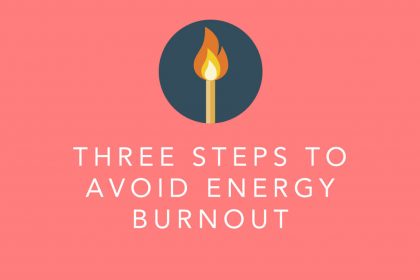Working hard but getting little done? Why you need to stop being busy if you want to be productive
Too many people assume being busy means they’re productive. But often the opposite is true. Discover the four misconceptions that could be tying you up in work – and limiting your effectiveness.
As the author and motivational speaker Kevin Abdulrahman once said: “Unsuccessful people are busy being busy. Successful people are busy being productive.”
Modern society rewards and reveres those of us who are busy. The busier you are, the more productive you must be as a result. Your output has to be adding value, right?
Not necessarily. Sometimes we get so focused on the idea of being busy as a means to show we’re productive, we forget to stop and take stock of what we’re actually doing.
A week full of meetings and hours chained to our desk pinging out emails, will of course keep us busy. But if there are no tangible outcomes by the end of the same week, how productive have you really been?
Don’t do more things – do the right things
Chris Bailey has dedicated his life to researching productivity, mainly by doing experiments on himself. He’s written a pretty interesting blog – ‘A Life of Productivity’– about some of his findings. He advises:
“I think the biggest mistake people make when they try to become more productive is they try to do more things, instead of the right things”.
Wise words, but for many it’s increasingly difficult to know the difference.
As creative freelancers, it can feel compulsory to ensure that our days are filled to brim. There’s a long held misconception that you need to be struggling towards your craft and being busy is the biggest statement of this.
While freelancing is no easy task, and it does take up more time than a 9-5 office job, that doesn’t mean that simply being busy is generating productivity.
Four ‘busy’ mistakes that are limiting your productivity
So, what are some of the mistakes you could be making that are actually resulting in you being less productive? Here are four ‘busy’ misconceptions that are limiting your effectiveness.
1) Long work hours = productivity
The average work day is set at 7.5 hours for a reason, yet many of us ignore this and work all hours of the day. There’s a huge misconception that by working long hours, you’re being more productive.
Research has confirmed something that’s pretty common sense; our brains aren’t designed to work intensely for eight hours straight. We get tired, burnout, and productivity goes out the window.
You’re much better off working shorter, more structured work hours with a clear focus planned in for each part of your day. It’s also really important to know what hours work best for you for productivity and plan your day accordingly.
If you know you have a clearer head in the morning – that’s the time to get your brain around some of the more challenging aspects of your work.
2) Lengthy to-do lists = productivity
Most people create to-do lists with a billion tasks on it, that they then feel like they have to get completed, usually within a very narrow and unrealistic time frame.
When we aren’t able to completely tick everything off our list, we start to feel demotivated.
You need to create a list that acknowledges that your workload is varied, with mixed priorities. When you’re taking this approach to your work, try creating a Success List instead; mark what needs to be done first, which tasks you find enjoyable and which ones you don’t, and assign them realistic deadlines.
3) Doing everything myself = productivity
The biggest mistake a lot of freelancers make is thinking they can do everything on their own. So often we take on projects and clients because we want the work and we know we can deliver – but that often means putting unnecessary pressures on our time and productivity levels.
When reviewing priority lists, consider what tasks you might be able to outsource. If you’ve got multiple clients on the go but your financial administration is taking up a lot of your time, now might be a good point to get some accountancy help.
If your website updates are taking you twice as long as you think it should, think about hiring a designer to support. Keep within your means and think about what tasks are taking up your time that could be better spent on the more important aspects of your business and delegate appropriately.
Productivity comes from collaboration as much as from the work you do yourself.
4) Not taking breaks = productivity
As mentioned above, our brains simply aren’t wired to work for long hours on end. We need regular breaks to recharge, refresh and generate new ideas. Forcing our brains to focus on challenging tasks for too long is also detrimental to our health and well-being.
How many times have you been stuck on a problem or creative dilemma, only to come across a solution when you’ve taken your mind away from the problem? Giving our brains space to focus on new tasks, allows them the ‘breathing room’ they need to untangle problems and come up with solutions.
How do you make a start on figuring out your productivity?
To really master your productivity, you need to understand where you’re making mistakes in the first place, and address them.
Conduct a review at the end of each week to determine your work output versus the time spent on it – what did you do differently? How did that impact your output?
All of this will set you on the path to increased productivity. It’s definitely worth adding that to your Success List!
Elaine Mead is a passionate education and careers consultant, and is particularly interested in empowering young women to be their professional best. You can follow her on Twitter and read more of her articles on medium.
Photo by rawpixel










